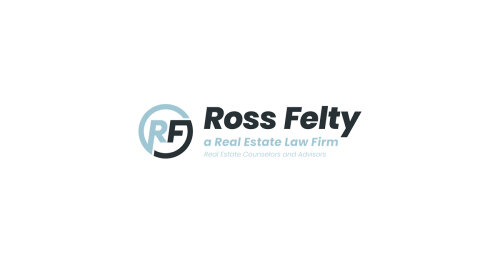Best Antitrust Lawyers in Florida
Share your needs with us, get contacted by law firms.
Free. Takes 2 min.
Or refine your search by selecting a city:
List of the best lawyers in Florida, United States
About Antitrust Law in Florida, United States
Antitrust law in Florida is designed to protect consumers and promote fair competition in the marketplace. These laws aim to prevent businesses from engaging in unfair practices such as price fixing, monopolies, bid rigging, and market allocation. Antitrust regulation can apply to companies of any size and affects a wide range of industries, including healthcare, retail, technology, and manufacturing. In Florida, both federal and state antitrust laws may apply, and enforcement can be handled by state agencies as well as federal authorities. Understanding the basics of antitrust law is crucial for businesses and individuals to operate lawfully and avoid costly disputes.
Why You May Need a Lawyer
There are many situations where you might need legal help with an antitrust issue in Florida. If you suspect a competitor or business partner is engaging in activities that restrict competition, such as forming a cartel or rigging bids, you may need a lawyer to protect your rights or interests. Companies accused of violating antitrust laws also require representation to navigate investigations or lawsuits. Additionally, mergers and acquisitions often require review to ensure they do not create monopolies or stifle competition. Consulting an antitrust lawyer is also crucial if you receive a government inquiry, are drafting contracts, or are designing business practices that raise competition concerns.
Local Laws Overview
Florida follows both state and federal antitrust laws. The Florida Antitrust Act closely mirrors federal laws such as the Sherman Act and the Clayton Act, prohibiting unlawful restraints of trade, monopolization, price fixing, and other anticompetitive behavior. The Florida Attorney General enforces state antitrust laws, often collaborating with federal agencies like the Department of Justice and the Federal Trade Commission. The state law allows individuals and businesses to file private lawsuits for damages caused by antitrust violations. Penalties for violations can include fines, injunctions, and even the unwinding of mergers or contracts. Understanding the specifics of both state and federal laws is essential, as local enforcement trends and priorities may impact legal outcomes.
Frequently Asked Questions
What is considered an antitrust violation in Florida?
Typical violations include price fixing, bid rigging, market allocation, monopolization, and certain types of mergers or acquisitions that reduce competition. Both intentional and unintentional actions can be subject to scrutiny.
Who enforces antitrust laws in Florida?
The Florida Attorney General’s Office enforces state antitrust laws, often working alongside federal agencies such as the U.S. Department of Justice and the Federal Trade Commission.
Can individuals sue for antitrust violations in Florida?
Yes, individuals and businesses have the right to file private lawsuits if they have suffered damages due to antitrust violations. Successful plaintiffs may recover actual damages and, in some cases, treble damages.
How do I know if my business practices might violate antitrust laws?
Activities like setting prices with competitors, dividing markets, or exclusive dealing arrangements could raise red flags. Consulting an antitrust attorney is the best way to evaluate your compliance.
What should I do if I receive a government inquiry about potential antitrust violations?
Contact an experienced antitrust lawyer immediately. Do not respond to investigators or officials without legal representation, as statements may be used against you or your business.
Are all mergers and acquisitions subject to antitrust review in Florida?
Not all, but large mergers or those likely to substantially reduce competition may be reviewed by state or federal regulators. Early legal review can help avoid delays or costly litigation.
Can small businesses be subject to antitrust enforcement?
Yes, antitrust laws apply to businesses of all sizes. Even small businesses can face claims or liability if they engage in prohibited practices.
What are the penalties for violating antitrust laws in Florida?
Penalties can include civil fines, court-ordered injunctions, the reversal of contracts or transactions, and payment of damages to affected parties. In severe cases, criminal charges may also apply.
How long do I have to file an antitrust lawsuit in Florida?
The statute of limitations for antitrust claims in Florida is generally four years from the date the violation occurred, but exceptions and specifics can vary depending on the case.
Do antitrust laws apply to online businesses and e-commerce?
Yes, antitrust laws apply to all types of businesses operating in Florida, including those conducting business online or across state lines.
Additional Resources
If you are seeking more information or assistance regarding antitrust issues in Florida, the following resources may be helpful:
- The Florida Attorney General’s Antitrust Division
- United States Department of Justice Antitrust Division
- Federal Trade Commission Bureau of Competition
- Florida Bar Association - Find a Lawyer Service
- Florida Statutes - The Florida Antitrust Act (Section 542)
- Local law libraries for public access to case law and statutes
Next Steps
If you believe you have an antitrust issue or simply want to ensure your business practices comply with Florida and federal laws, the first step is to consult with an experienced antitrust attorney. Gather any relevant documents, such as contracts, correspondence, and business policies, before your meeting. Legal experts can give personalized guidance, advocate on your behalf in government investigations or lawsuits, and help you understand your rights and obligations. Acting promptly is important, as antitrust matters can have significant legal and financial consequences. Consider reaching out to local bar associations or the resources listed above for referrals or more information.
Lawzana helps you find the best lawyers and law firms in Florida through a curated and pre-screened list of qualified legal professionals. Our platform offers rankings and detailed profiles of attorneys and law firms, allowing you to compare based on practice areas, including Antitrust, experience, and client feedback.
Each profile includes a description of the firm's areas of practice, client reviews, team members and partners, year of establishment, spoken languages, office locations, contact information, social media presence, and any published articles or resources. Most firms on our platform speak English and are experienced in both local and international legal matters.
Get a quote from top-rated law firms in Florida, United States — quickly, securely, and without unnecessary hassle.
Disclaimer:
The information provided on this page is for general informational purposes only and does not constitute legal advice. While we strive to ensure the accuracy and relevance of the content, legal information may change over time, and interpretations of the law can vary. You should always consult with a qualified legal professional for advice specific to your situation.
We disclaim all liability for actions taken or not taken based on the content of this page. If you believe any information is incorrect or outdated, please contact us, and we will review and update it where appropriate.
Browse antitrust law firms by city in Florida
Refine your search by selecting a city.












